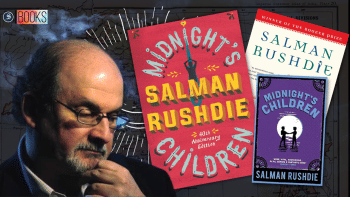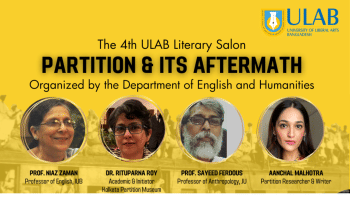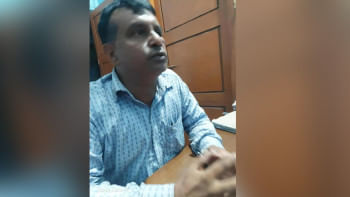The journey of 'Khwabnama' from a novel to a play

I had read Akhtaruzzaman Elias' novel Chilekothar Sepai (University Press Limited, 2015) but not Khwabnama (Mowla Brothers, 1996). I was always just getting around to reading it. One day, the theater director of our group, Kazi Toufikul Islam Emon, asked me, "Have you read Khwabnama?" When I said no, he asked me to read the novel carefully, because he wanted to bring it to the stage; he told me to start working on its dramatisation.
The year was 2014. I sat down with the novel during my summer vacation. I did not understand much of anything after reading the first few chapters. I sat there wondering why Emon bhai wanted to bring this to the stage. It was impossible! The story began very slowly, but I continued to move forward with great patience. And after a while, I got lost in it.
I was consumed by the world of imagination holding the hand of Tamij's father. There, I started to see the flying clouds, the munshi in the big tree, the fish in the Katlahar Bil. I started visiting Katlahar Bil, Golabari Haat, and the Giridanga and Nijgiridanga villages. Along with Tamijer Baap, the other characters of the story, Kulsum, Cheragh Ali Fakir, Munshi, Tamij, Sharafat Mandal, Fuljan, Keramat, and many others began to appear in front of me.
When I finished reading the novel, I felt stunned for a few days. I realised that it had to be converted into a play! But how?
I sat down with its director and our mentor, Toufikul Islam Emon, about the play. He gave me an idea of how he envisioned Khwabnama and what were the issues that could be worked on. I started working according to his instructions.
First, I listed the main characters to dramatise and separate the events of the text. Then I started arranging the script according to the events.
The director said that the play would have both dialogue and narration. We would use the Bogra dialect—even though the novel uses the Bogra dialect in some parts and more formal Bangla language in others. For the time being, I wrote the dialogues in the regional language and continued to write the descriptions in mainstream Bangla.
As a text, Khwabnama is extensive; the story has many branches and sub-branches. It isn't possible to include all its subplots and themes in a play, and so I focused the script on just a few and began to let it grow. One of the topics we chose is the social, political, and religious context of the people who grew up around Katlahar Bill before, during, and after the Partition of 1947. These people, moreover, live in two worlds—one real and the other fantasy. The comparison of these two worlds had to be kept in mind while shaping the drama.
After about four months of hard work, when the first draft of 'Khwabnama' the play was finally prepared, we asked the director for his opinion on the script. He read the first draft and suggested some revisions. I re-read the novel and revised it again. In this way, the fourth draft of the play was ready after almost a year of work.
We began rehearsals with the fourth draft of the play in 2015. But due to various reasons the work stopped—the lack of time and opportunities got in the way. It was in 2018 that we resumed work.
The 35th batch of Prachyanat School of Acting and Design were performing 'Khwabnama' at the time, as part of their final production. In continuation of this, in 2019, Prachyanat prepared the production for the drama festival arranged by Nagorik Natya Sampradaya theatre company. I was working on the sixth draft by then—as the 37th production of Prachyanat, guided by my teacher Azad Abul Kalam and director Toufikul Islam Emon.
Since then, 'Khwabnama' has been staged regularly. We are constantly revising the play. Some imperfections always seem to be present. I once thought it was impossible to present the magnitude of the novel on stage. I still can't quite believe it. I salute Akhtaruzzaman Elias. To me, 'Khwabnama' is a pagla ghora—a crazy horse. While dramatising it, I often felt the sentiment—
Amar Pagla ghora re
Koi Thaika Koi Loiya Jaas.
Md. Shawkat Hossain Sajib is a playwright at Prachyanat.
Prachyanat's 'Khwabnama' will be performed today, October 24, at Bangladesh Shilpakala Academy at 7:00 pm.

 For all latest news, follow The Daily Star's Google News channel.
For all latest news, follow The Daily Star's Google News channel. 









Comments